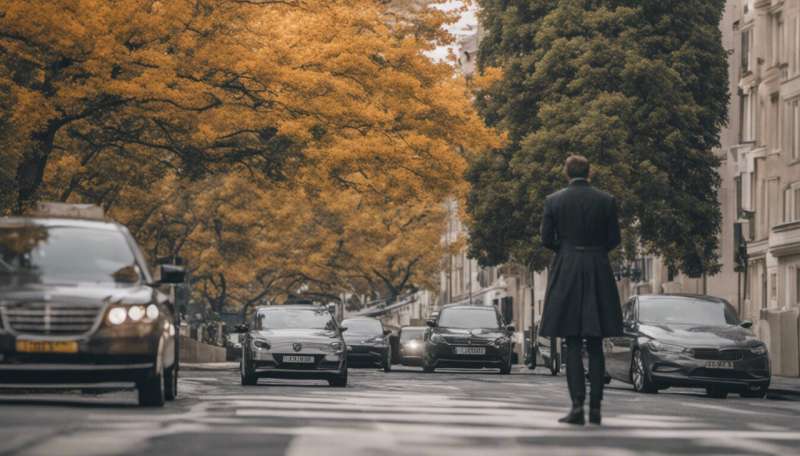This article has been reviewed according to Science X's editorial process and policies. Editors have highlighted the following attributes while ensuring the content's credibility:
fact-checked
trusted source
proofread
Projects provide fresh insights into what it takes for communities to accept different religious and world views

Ann Trappers harnessed a shock in her native Belgium to help heal social wounds across Europe.
After Islamic terrorist attacks in Brussels in March 2016 left 35 people—including three suicide bombers—dead and more than 300 injured, Trappers and her colleagues at a non-governmental organization called Foyer sought to rebuild community trust and cohesion.
No taboos
They used the NGO's long-established youth center in the religiously and ethnically diverse neighborhood of Molenbeek. Their experience fed into a research initiative to explore and foster religious tolerance in eight European countries.
"One of the ways in which we worked to counter radicalization was to ensure it didn't become a taboo subject," said Trappers, program coordinator at Foyer. "We wanted young people to be able to talk about it freely and safely in the setting of the youth center."
Concerns about growing polarization in Europe have pushed the issue up the EU political agenda.
The portfolio of a vice-president of the European Commission, Margaritis Schinas, includes dialog with churches as well as religious associations and communities. The portfolio is called "Promoting our European Way of Life."
The EU is also putting its weight behind various initiatives—including the Radicalisation Awareness Network—aimed at helping communities in Europe live harmoniously together.
The EU project in which Trappers was involved ran from May 2018 through October 2022 and was called RETOPEA. It brought together academic organizations from Belgium, Estonia, Finland, Germany, Poland and Spain as well as non-EU countries North Macedonia and the UK.
The project explored ways in which religion is regarded in the educational, professional and social realms. It also examined how peaceful religious coexistence has been established over history.
Past and present
The idea was to use insights gained from the past to inform thinking about religious tolerance today.
"It's not often you get the opportunity as a historian to make your work relevant," said Patrick Pasture, who coordinated RETOPEA and is a professor of modernity and society at Catholic University Leuven in Belgium.
The project delved into more than 400 primary source extracts from historical peace treaties, contemporary news reports and cultural snippets.
Based on these materials, teenagers from Foyer and other youth associations in each of the participating countries joined workshops to create their own video blog—or "vlog"—about religious tolerance and coexistence.
The vlogs, available on the RETOPEA website, include interviews with passersby, drawings and other creative work.
Pasture said the act of working together took the focus away from the participants' differences.
"The most important thing will always be that people have to learn to talk—to refrain from immediately judging," he said.
Spreading the word
Pasture was struck by the number of students who were unaware of the religious beliefs of classmates and by how open they were to talking about the issue.
He said most participants were upset about the divisiveness of contemporary discussions of religion and 'hated' the rise of polarization.
Around a year after RETOPEA wrapped up, the results and materials collected are informing actions by interfaith organizations, governmental bodies and European teacher associations.
The project team is regularly invited to make presentations at teaching workshops and seminars in the EU and beyond—places ranging from Austria and Italy to Jordan and Wales.
And the European Association of History Educators—established in 1992 to build educational bridges on the continent following the collapse of communism in eastern Europe—includes the RETOPEA materials on its website.
Middle ground
Another research project looked specifically at the notion of tolerance—how it feels for people to push themselves to accept "others" and what it feels like to be "tolerated." The research relied mainly on questionnaires and online experiments.
"People have their own opinions and their own beliefs and we can't just expect them to give them up and consider everything of equal value," said Maykel Verkuyten, who led the initiative and is a professor in interdisciplinary social science at the University of Utrecht in the Netherlands.
Called InTo for Intergroup Toleration, the project ran for five years through September 2022.
In conducting studies in the Netherlands and Germany, Verkuyten and his team were pleasantly surprised to find that a clear majority of people regarded tolerance as an important societal value.
He said that most respondents agreed with, for example, the following two presented statements: "I accept it when other people do things that I wholeheartedly disapprove of" and "Everyone is allowed to live as he or she wants, even if it is at odds with what I think is good and right."
On a cautionary note, the team also found that it's far easier to move people towards greater intolerance than it is to make them more tolerant.
Verkuyten is driven by an interest in the middle ground of the whole subject—where space exists for differing views without any desire either to crush or to celebrate them.
He said this zone must be promoted through civics courses, human-rights lessons and other educational initiatives to help ensure the health of democracies and multicultural societies.
"There is something in between being very negative, discriminatory, and fully embracing all diversity," Verkuyten said. "That's essential for a functioning liberal democracy and indispensable for a culturally diverse society."
Provided by Horizon: The EU Research & Innovation Magazine




















